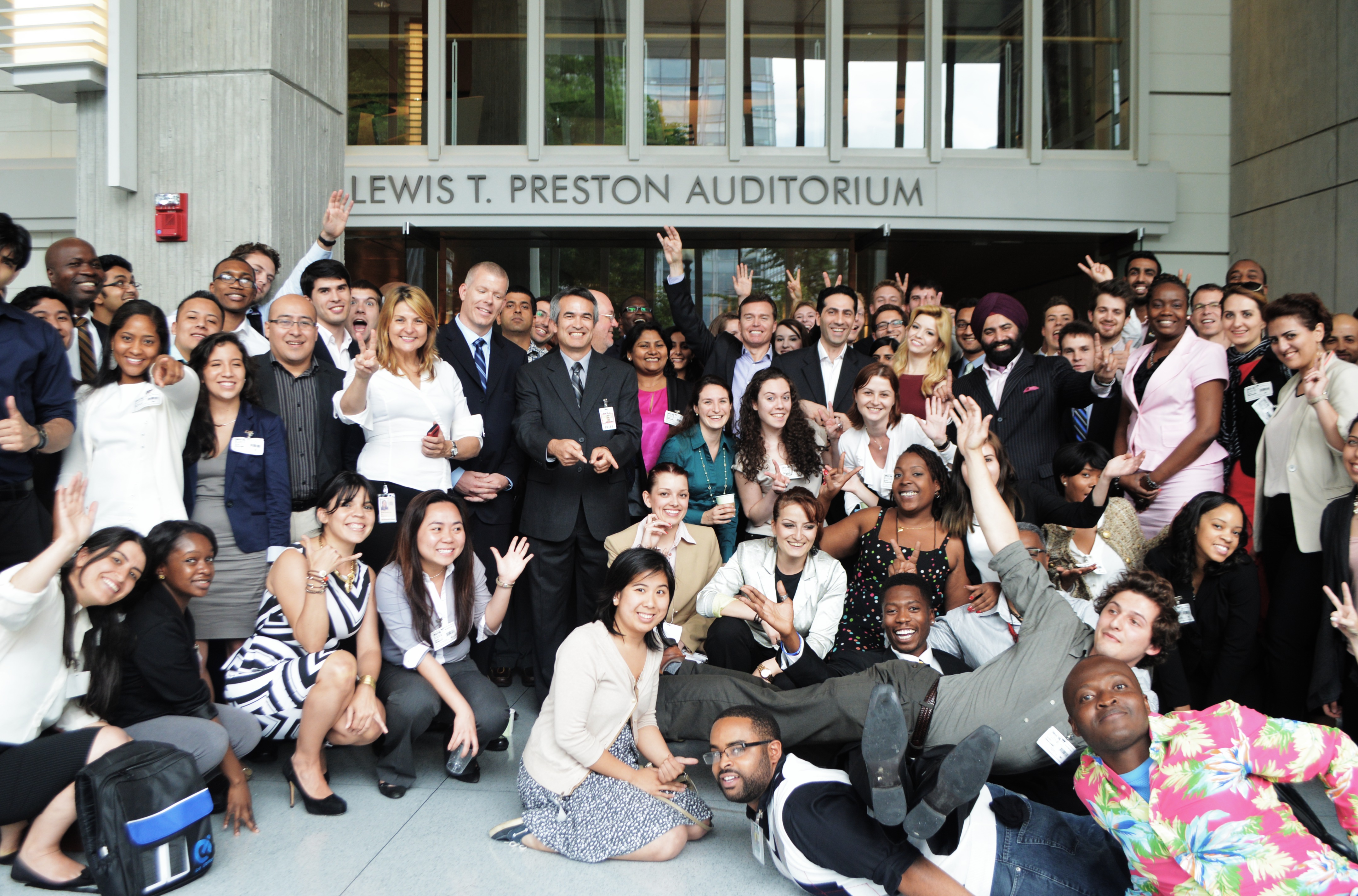
Photo courtesy of Athgo
Dr. Armen Orujyan is the founder and chairman of Athgo, an entrepreneurship platform that is in consultative status with the United Nations Economic and Social Council, U.N. Department of Public Information and the World Intellectual Property Organization. Athgo advances innovation ecosystems in Europe and Africa and has established recurring global innovation forums at the U.N. and World Bank. Orujyan earned his bachelor’s degree from the University of California, Los Angeles in 2000 and his doctorate degree from Claremont Graduate University in 2007. In 2017, Orujyan joined the Baker Institute’s Board of Advisors.
The McNair Center’s Diana Carranza recently interviewed Orujyan about his experience in social entrepreneurship.
What is your definition of Social Entrepreneurship?
I would characterize, albeit no longer classify, social entrepreneurship as building enterprises that create both financial wealth and communal value. The approach advances the idea that “doing good” and “doing well” can and should coexist. I just call it constructive entrepreneurship. Constructive entrepreneurs create short-term value through the provision of products and services, and long-term value through enterprise operations. Their activities incorporate two characteristics: positive net income (wealth creation) and positive net value (communal value creation). To be successful, constructive entrepreneurs expand performance criteria to measure and communicate both net income and net value.
How did you get involved in Social Entrepreneurship?
While in college after doing advisory work for U.S. political campaigns, including Vice President Gore’s Presidential run in 2000, I led a human rights movement that brought over 40,000 young people and concerned citizens onto the streets of Los Angeles. Leveraging the power of social media and the convening power of youth, the movement has since turned into an annual observance, attracting in effect of 160,000 people.
The experience of passionately following a vision and watching tens of thousands of people from all walks of life join to pursue a common objective was humbling and at the same time powerful and enlightening. I began seeing that with a slight push, direction and a compelling story, not only I, but also all individuals on the margins, especially young people, can realize their potential.
The success of the movement was emotionally gratifying and intellectually fulfilling, and it paved the way for my next phase in life. I wanted to do well in life by empowering young adults avoid many of my own past challenges and encourage and aid those with great ideas.

Photo courtesy of Athgo.
There are three ways of living: 1. Live aimlessly, 2. Live for a purpose and 3. Purposefully live. I went with number 3 and founded Athgo as a nonprofit that provided a stage for young people pursuing common objectives but lacking direction, access or means.
We launched with a small program at UCLA with 20 students, but Athgo quickly evolved into a global entrepreneurial platform powered by a proprietary quantitative behavioral framework and with recurring Innovation Forums at the United Nations and the World Bank headquarters as well as in Europe and Africa.
Over the years, the Organization, has provided intellectual, networking and financial opportunities to over 10,000 young adults from over 600 universities in 80 countries while building support from Fortune 100 firms and cultivating partnerships with leading academic institutions and the United Nations system.
What are the current misconceptions about Social Entrepreneurship? For example, there is a general association of the term social with not-for-profit startups.
This is one of the reasons why I stopped using ‘social’ and instead use ‘constructive’ to classify our work. Constructive enterprises produce both positive net-income and positive net-value, whereas nonprofits are not structured to be profitable, essentially relying on donors’ buy-in to be successful.
What are the current main areas of focus and challenges for social ventures?
The challenge becomes incorporating both of these features, net-income and positive net-value, into project and management performance measures. While each constructive enterprise must create financial success and communal value, there are varying definitions and varying degrees.
In the case of not-for-profit ventures, how can success be measured?
The nonprofits predominately focus on producing social impact at all costs, as long as it is within the allocated budget. The concern with this is that the budget allocations for many of these initiatives are done subjectively rather than based on deep market analysis. The question has been whether the efforts of the nonprofits are established based on a ‘need’ or a ‘desire’ of the organization to produce the value.
How can ecosystems address the need of social entrepreneurs?
In order to successfully execute constructive enterprises, there must be an effective management reward structure that incorporates both communal value and financial success. Without clear definitions of how performance will be measured, management will be conflicted between competing goals.
Existing performance measures do not always support this enterprise type. Attempting to create a management reward system based on blended return without performance measures can lead to conflicting goals, which will threaten viability and undermine long-term stability.
These performance measure limitations lead some enterprises to produce superior revenue accentuation and some entities superior value accentuation. Ecosystems should have a system in place that promotes and rewards a pre-established balance between revenue and communal value. It ought to establish for companies both financial hurdles and communal value hurdles. Managers then will look to achieve a pre-established balance between revenue and communal value.
Are there niche entrepreneurship ecosystems for social ventures?
We are what we observe ourselves to be – a rock star or a rock under a star – our choice. It really does not matter where you are geographically. Companies such as Tesla, Facebook and ERI are successfully operating as constructive enterprises away from federal and state capitals. Yet, if we want to promote more rock stars, the ecosystems would need to implement favorable legal frameworks, which will reward the constructive approach. For the time being, this is still a dream.

